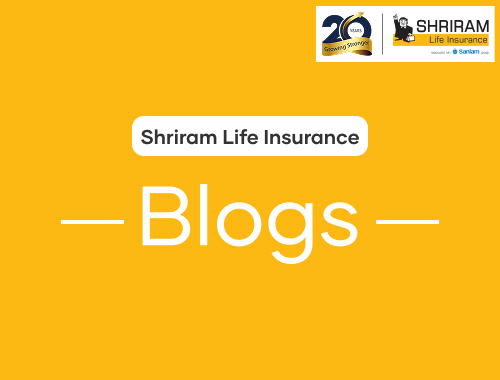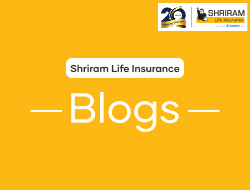Cash Value in Life Insurance - Everything You Need to Know
- Posted On: 25 Sep 2025
- Updated On: 25 Sep 2025
- 297 Views
- 4 min read

Table of Contents
When somebody mentions life insurance, the payout following a policyholder's absence is probably the first thing to come to mind for many. But have you ever heard that some policies build financial cushions for the policyholders while they are present? That extra feature is called cash value, and understanding cash value will help you determine which types of policies may be the best fit for you financially.
What Is Cash Value in Life Insurance?
Cash value in life insurance is a type of policy that combines protection with a savings element. A portion of your premium goes toward life cover, while the rest is invested in a cash value account that grows over time. You can think of it as a built-in savings account inside your insurance policy.
Example: If you pay ₹10,000 as a premium, part of it covers your insurance, and the remaining amount builds cash value that you can later access.
Types of Life Insurance Policies with Cash Value
Cash value is not available in every life insurance policy. It is usually a feature of permanent insurance plans that are designed for long-term coverage and savings. Here are the common types:
Whole Life Insurance
Whole life insurance is the simplest form of permanent insurance. It provides coverage for your entire life, along with guaranteed cash value growth. Premiums remain fixed, which makes it predictable and easy to plan.
- Lifelong coverage with fixed premiums
- Guaranteed growth of cash value
- Option to borrow against the accumulated cash value
Universal Life Insurance
Universal life insurance gives you the flexibility to adjust both your premium payments and death benefit. The cash value grows based on interest rates declared by the insurer.
- Flexible premium payments
- Adjustable death benefit
- Cash value grows based on interest rates set by the insurer
Variable Life Insurance
Variable life insurance combines protection with investment options. Your cash value is invested in equity, debt, or hybrid funds, which means higher growth potential but also market risk.
- Cash value invested in equity, debt, or hybrid funds
- Higher growth potential, but linked to market performance
- Useful for policyholders with a higher risk appetite
Indexed Life Insurance
Indexed life insurance ties cash value growth to a market index such as Nifty or Sensex. It offers a balance between steady returns and market-linked potential, with some protection against losses.
- Growth linked to an index like Nifty or Sensex
- Combines guaranteed returns with market participation
- Protects against complete market downturns
How Cash Value in Life Insurance Works?
The process of building cash value starts the moment you begin paying premiums. Instead of directing the entire premium to life cover, insurers split it into two parts. One covers your insurance protection, while the other is set aside and allowed to grow over time. This simple process creates a savings pool that you can access while the policy is active.
- You pay premiums on your life insurance policy.
- A portion goes toward the cost of insurance.
- The rest is deposited into your policy’s cash value account.
- The cash value grows through guaranteed interest or market-linked returns.
- Over time, you can borrow against it, make partial withdrawals, or use it to pay future premiums.
Ways to Access Cash Value of a Life Insurance Policy
Cash value in life insurance gives you more than long-term protection. It also creates a pool of money that you can use in different ways while your policy is active. The options depend on the type of plan you choose and how long you’ve held it, but the most common methods include:
- Withdrawals: Take out a portion of the accumulated cash value after the policy has built up enough balance.
- Policy Loans: Borrow money against your policy by using the cash value as collateral, usually at lower interest rates than traditional loans.
- Premium Payments: Use your cash value to cover future premiums, keeping your policy active without additional out-of-pocket costs.
- Surrender: Surrender your life insurance policy for cash value if you no longer want the coverage, though this ends your protection.
Build cash value that works for you and your family. Explore Shriram Life Savings Plans. |
Advantages of Cash Value in Life Insurance
Cash value in life insurance is designed for people who want more than basic protection. It provides lifelong coverage while also creating a pool of savings you can use during your lifetime. Here are some of the most common use cases:
- Retirement Planning: Utilise the cash value to supplement your retirement income and cover expenses once you retire.
- Emergencies: Access funds quickly during medical situations or unexpected financial needs without taking a traditional loan.
- Education Expenses: Withdraw or borrow from your cash value to support your child’s higher education.
- Premium Flexibility: Apply the accumulated cash value to pay premiums, reducing your out-of-pocket cost.
- Wealth Transfer: Ensure your family still receives the death benefit, regardless of how much cash value you use.
This mix of protection and flexibility makes cash value life insurance suitable for long-term financial goals.
What Affects Cash Value in Life Insurance
- Age: Younger policyholders build more value over time
- Premium payments: Higher premiums increase savings
- Policy type: Whole life, universal, or variable policies offer different growth rates
- Investment performance: For market-linked plans, returns depend on fund performance
Build cash value that works for you. Explore Shriram Life Insurance Plans. |
Making the Most of Your Policy’s Cash Value
Cash value life insurance is more than a safety net. It gives you living benefits in the form of savings and investment growth while still protecting your family. However, the actual value depends on factors like your age, premiums, policy type, and the duration of your investment.
If you are considering this option, review policies carefully and choose one that fits your long-term financial goals. Shriram Life Insurance offers a range of life insurance plans designed to help you balance protection and wealth-building, so you get the most out of your policy both today and in the future.
Disclaimer: This information provided is intended for general informational purposes only. For personalised recommendations, please consult a certified insurance professional.
ARN:SLIC/Elec/Sep 2025/1160
Frequently Asked Questions (FAQs)
What is the cash value in insurance?
Cash value is the savings component of specific life insurance policies, such as whole life or universal life. It grows over time and can be used while you’re alive.
Can I withdraw my cash value anytime?
Yes, but withdrawals are usually allowed only after a few years of holding the policy. They may reduce your death benefit or have tax implications.
What happens if I surrender my life insurance policy for cash value?
When you surrender, the insurer pays you the accumulated cash value (minus charges). However, the policy terminates, and your family loses future protection.
Does cash value life insurance offer tax benefits?
In India, premiums may qualify under Section 80C, and maturity/death benefits may be exempt under Section 10(10D), subject to conditions.
Is life insurance with cash value better than term insurance?
Not necessarily. Term insurance is cheaper and best for pure protection, while cash value policies are suitable for those who want both insurance cover and savings/investment growth.
What is a Free Look Period in Insurance and How Does it Work?
OTP Verification
Please Enter OTP that has been sent to your registered
Mobile Number +91
You may be interested in
People also search for
Our Other Popular Plans





